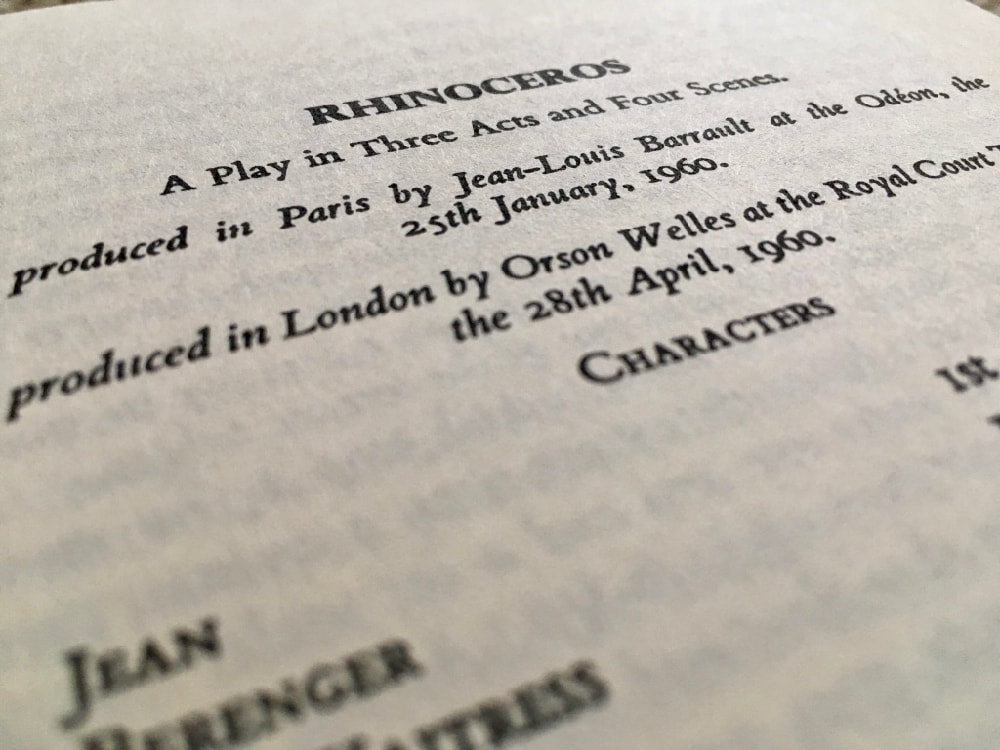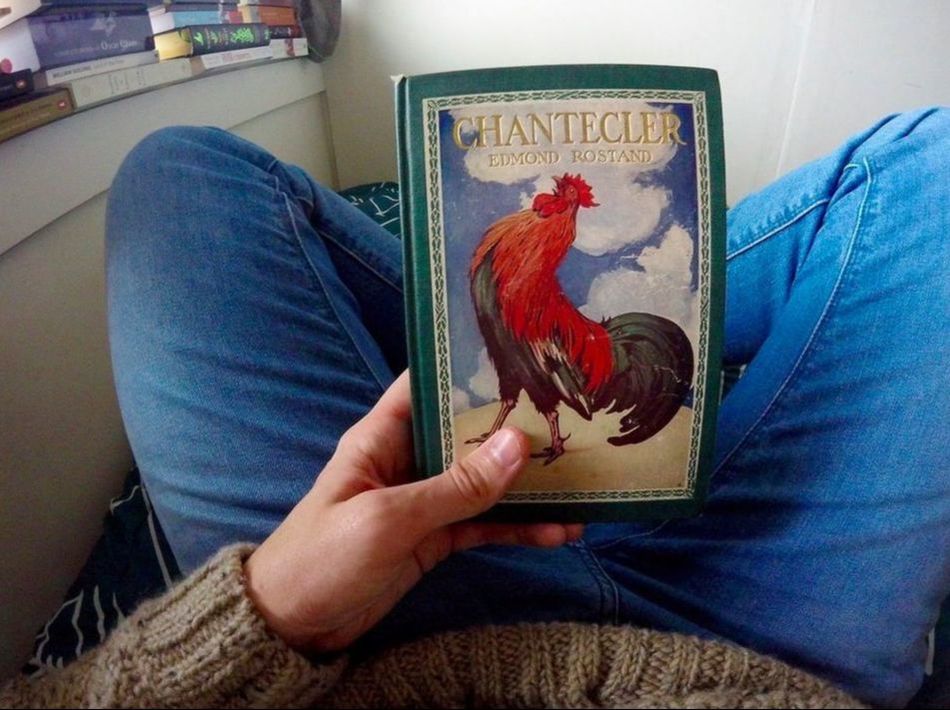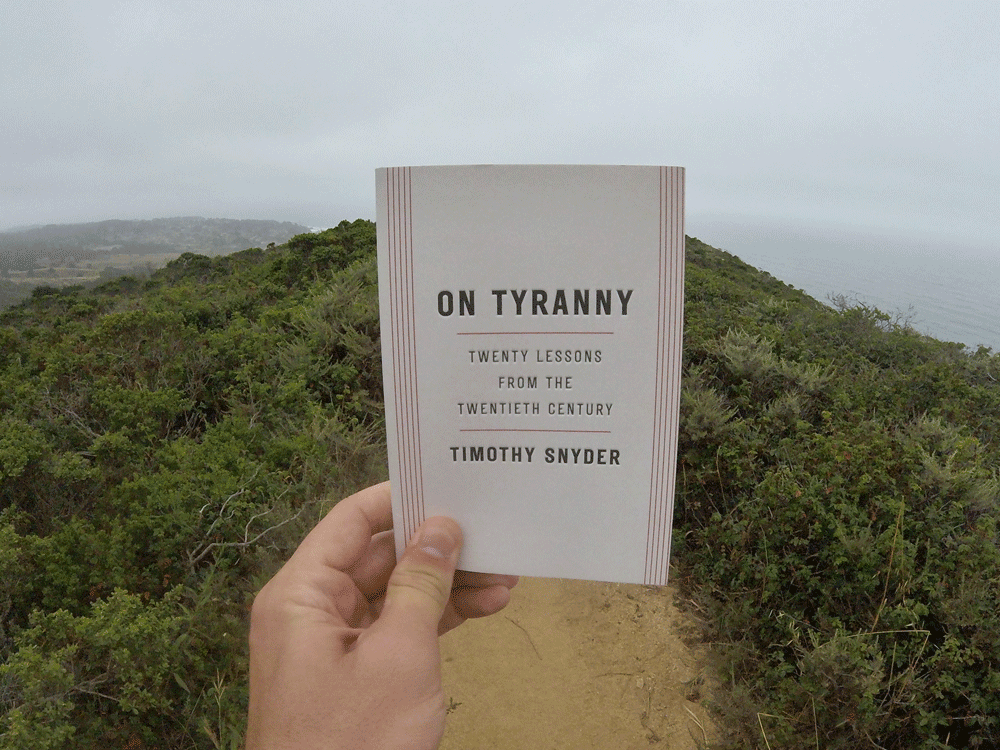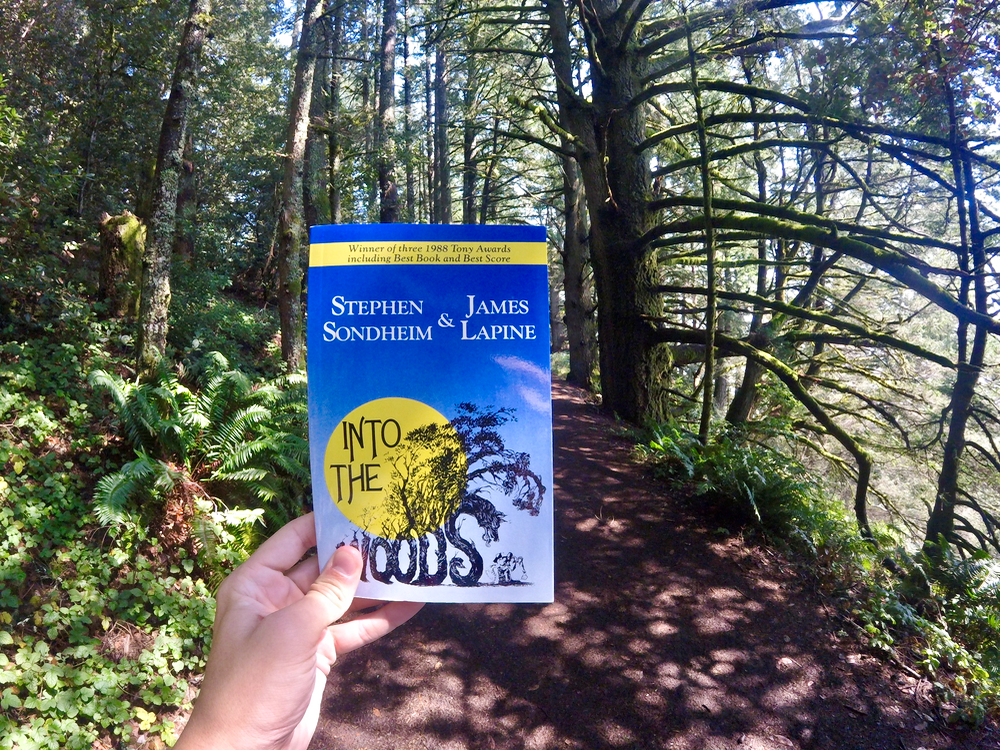| On a normal Sunday morning, a peaceful, nameless town is deeply shaken when, inexplicably, a rhinoceros stampedes through the town square. There's no such beast for miles it's believed, not even in the far-off city zoo. However, a second one appears that same morning, killing someone's cat; a third arrives and then more, until the "movement" is universal. Worse, average citizens begin transforming into the beasts, as they learn to "move with the times." Rhinoceros reads like a horror-comedy with its strange mix of a surreal situation and dystopian metaphors. Illogical syllogisms from the town's Logician seem to hasten the multiplying. Pointless arguments about how to identify specific species of rhinoceros eat up public discourse. And the mayor and press would rather declare the rhinoceros as unreal, the townspeople as suffering from "collective psychosis," than face the truth. Few do; fewer resist the transformation and cling to their humanity. This play was recommended to me by Timothy Snyder, author of On Tyranny, a fantastic pocket-sized book with "twenty lessons from the twentieth century," which explores the creeping tell-cards of authoritarianism. Ionesco's exploration in just under 100 pages are as relevant and accessible as when he wrote them in post-WWII France. I thoroughly enjoyed—and grimaced—throughout this obscure and unique play. [JG] |
ABOUT THE AUTHOR
| Eugène Ionesco (1909-1994) was a Romanian-French writer who crafted more than twenty plays, as well as stories, memoirs, and essays, including some sharp criticisms of Victor Hugo. Like in Rhinoceros, much of his work explores the dangers of trusting authority figures, human solitude experienced within society, and his absurdist views of existence. |
YOU MAY ALSO LIKE

























